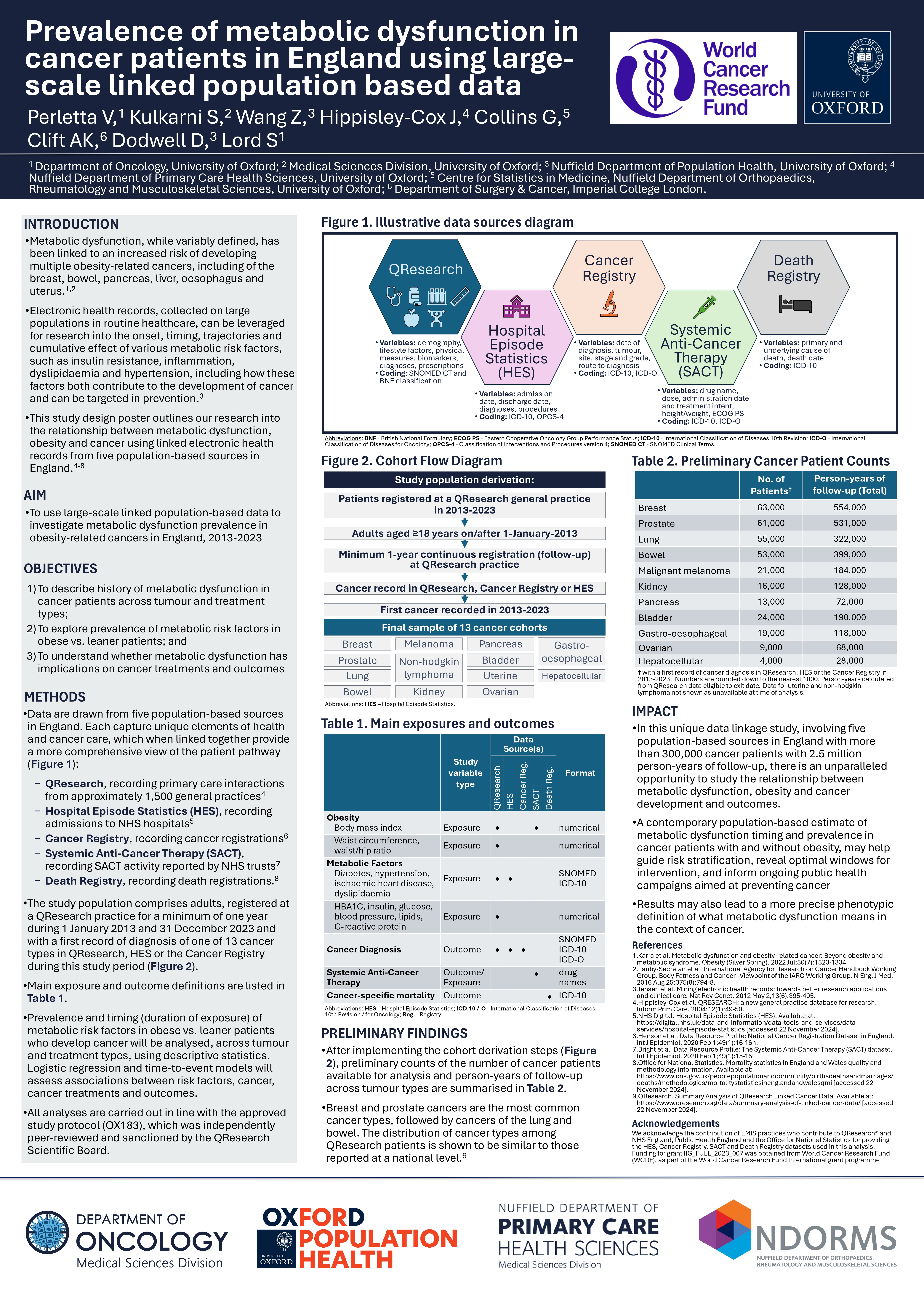Status
Ongoing
Title
The impact of obesity on survival outcomes following drug treatment for advanced malignancy
What is the aim of the study and why is it important?
Obesity is known to increase the risk of developing many types of cancer. However, once someone has developed cancer being overweight may mean for some cancer types the prognosis is better but for other types worse. The reasons for this are not fully understood.
Aims and objectives
It is possible that this relationship between obesity and different outcomes after cancer diagnosis may be related to factors such as general ill health of some cancer patients with a low weight, obese patients coming into contact with doctors more often and hence there being a greater likelihood of picking up cancer earlier and some drug treatments working more effectively in obese patients. We plan to investigate this further.
How it will be done
In this study we will use national NHS databases that capture the data for all patients in England that have received cancer drug treatment in the past decade to try and understand how improved survival in obese patients may relate to their cancer treatment and other aspects of their medical history. The study will also look at how many patients in England receiving cancer drug treatment are overweight and any differences in the length of time patients live with cancer for those that are overweight.
Potential impact
This will be the largest study using patient records to assess why some patients with obesity may live longer with cancer whilst other obese patients fare worse. Information from this analysis may help us to identify ways in which we can improve the treatment of both obese and lean patients with cancer.
Chief Investigator
Dr Ashley Clift
Lead Applicant Organisation Name
Sponsor
Oxford
Location of research
University of Oxford
Date on which research approved
04-Apr-2024
Project reference ID
OX183
Generic ethics approval reference
23/EM/0166
Are all data accessed are in anonymised form?
Yes
Brief summary of the dataset to be released (including any sensitive data)
General Practice data - Demographic data (e.g. age at cancer diagnosis), ethnicity, smoking status, alcohol intake, BMI, selected obesity-related comorbidities as recorded in primary care, deprivation index
Hospital Episode Statistics - Admitted Patients - to identify selected obesity-related comorbidities in included individuals (e.g. ischaemic heart disease, stroke, diabetes, dyslipidaemia)
Hospital Episode Statistics - Outpatients - to identify selected obesity-related comorbidities in included individuals (e.g. ischaemic heart disease, stroke, diabetes, dyslipidaemia)
Public Benefit Statement
Research Team
Dr Ashley Clift - University of Oxford
Prof Julia Hippisley-Cox - University of Oxford
Dr Simon Lord - University of Oxford
Dr David Dodwell - University of Oxford
Dr Zhe Wang - University of Oxford
Approval Letter

Access Type
Trusted Research Environment (TRE)

